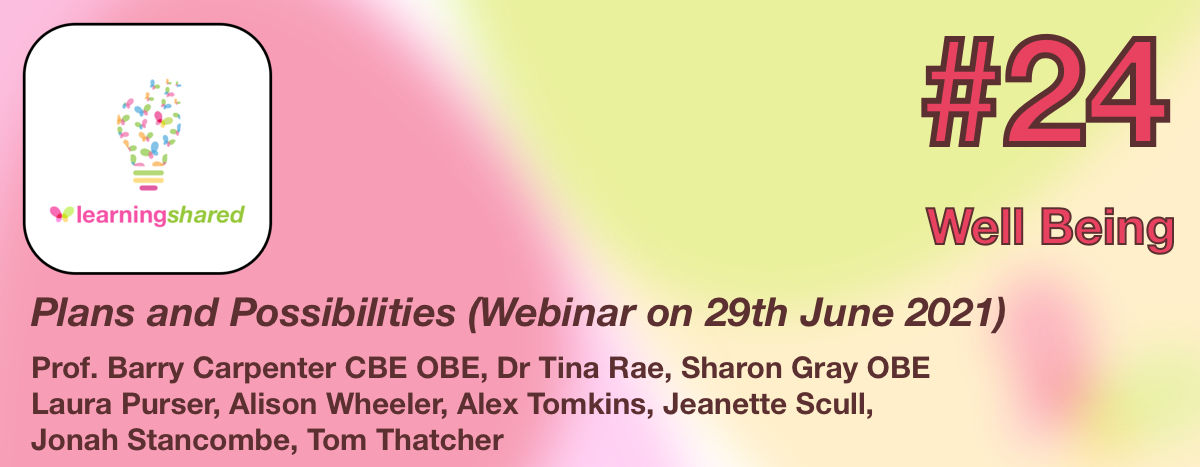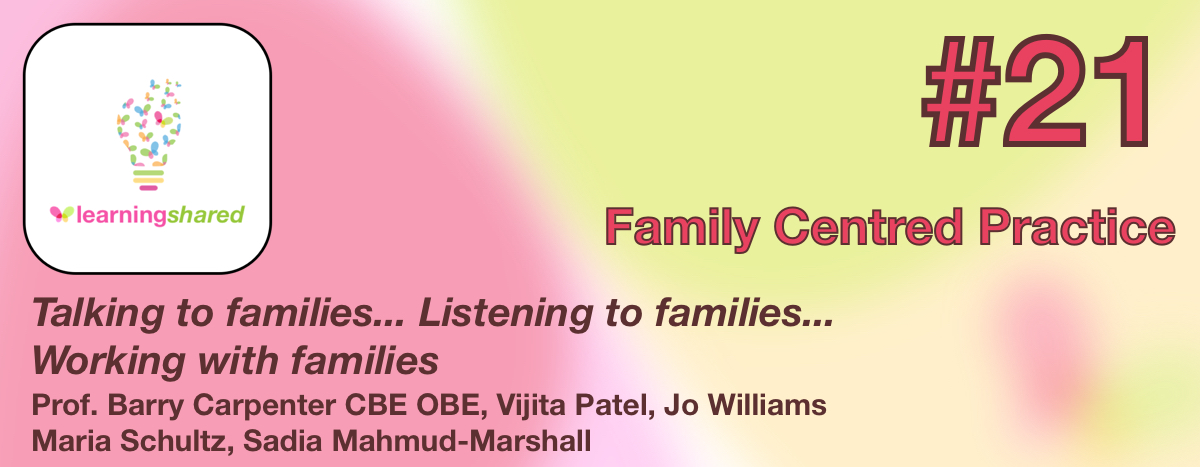Link: PELICAN | Foundation for People with Learning Disabilities


This episode is a recording of the online conference and webinar on the topic Well Being that was held on 29th June 2021. The event and this recording contains presentations and talks from national leaders in the field of mental health, well being, trauma informed practice and psychology including Professor Barry Carpenter CBE OBE FCCT, Dr Tina Rae, Sharon Gray OBE and Laura Purser, as well as 5 school based practitioners and leaders from a wide range of settings and contexts.
Presenters and panellists:
Professor Carpenter writes…
“The pandemic period has witnessed a rapid erosion in the mental health of children. National figures are worrying, but as ever, as Teachers, we must ask ‘how does this affect children’s learning, and how can we remove barriers to achievement generated by issues such as anxiety, trauma and loss?”
Two major Curriculum initiatives from this September will enhance the foundations created, pre pandemic, of Mental Health Leads in school, Mental Heath First Aid Training, etc:
Firstly, for all children, the new DfE Relationships, Health and Sex Education (RHSE) Curriculum becomes statutory. With its clear focus on Mental Well Being and Relationships, these are perfect platforms for rebuilding each school’s curriculum on meaningful human values, with RSHE at its heart, … for teaching is a relationship based profession.
Secondly, for children with SEND, the implementation of the Rochford Review recommendations, not only brings the Engagement Model into play as statutory summative assessment, but sees a renewed emphasis on the 4 domains of SEND in the Code of Practice (2015) as the curriculum framework for children with an EHCP. As such Social, Emotional and Mental Health, (SEMH), is a vital platform for designing learning opportunities for children with EHCPs.
Evidence for Learning has a strong history of facilitating curriculum development, pedagogy, assessment and practice in the area of Mental Well Being (MWB) through a variety of strategies.”
Alongside Prof. Barry Carpenter, presenters included national leaders and experts in the field – Dr Tina Rae, Sharon Gray OBE, and Laura Purser – together with school based practitioners – Alison Wheeler, Alex Tomkins, Jeanette Scull, Jonah Stancombe and Tom Thatcher – for a rich and comprehensive collection of presentations and sharing of knowledge, ideas and practice that you are invited to take back to your own schools for your own discussions, planning and CPLD.
This episode is packed full of valuable ideas and insights, with colleagues sharing knowledge, ideas and practice that you are invited to take back to your own schools for your own discussions, planning and CPLD.
The UK Government has launched its new National Autism Strategy. (See below)
National strategy for autistic children, young people and adults: 2021 to 2026 – GOV.UK (www.gov.uk)
This podcast exalts Schools to shift the focus from partnership with parents to partnership with families; to embrace a more holistic and inclusive approach which values the contributions of all family members involved in a Childs life.
At its loftiest this is a paradigm shift to more Family centred practice; in its practical reality it is about adjusting your school newsletter to read ‘dear families’, instead of ‘dear parents’.
In 21st-century Society, when so much childcare is delivered by family members other than parents, do we truly value their contribution ? Does it matter if the home – school liaison diary is completed by a grandparent ? Where is the ‘SibShop’ workshop event in the school calendar to enable siblings to come together for fun activities whilst bonding with other siblings whose life journey is also as a brother/ sister to a child with special educational needs/ disabilities ?
Such approaches will enrich the practice of our schools, and the lives of our families, as the speakers in this podcast powerfully illustrate.
